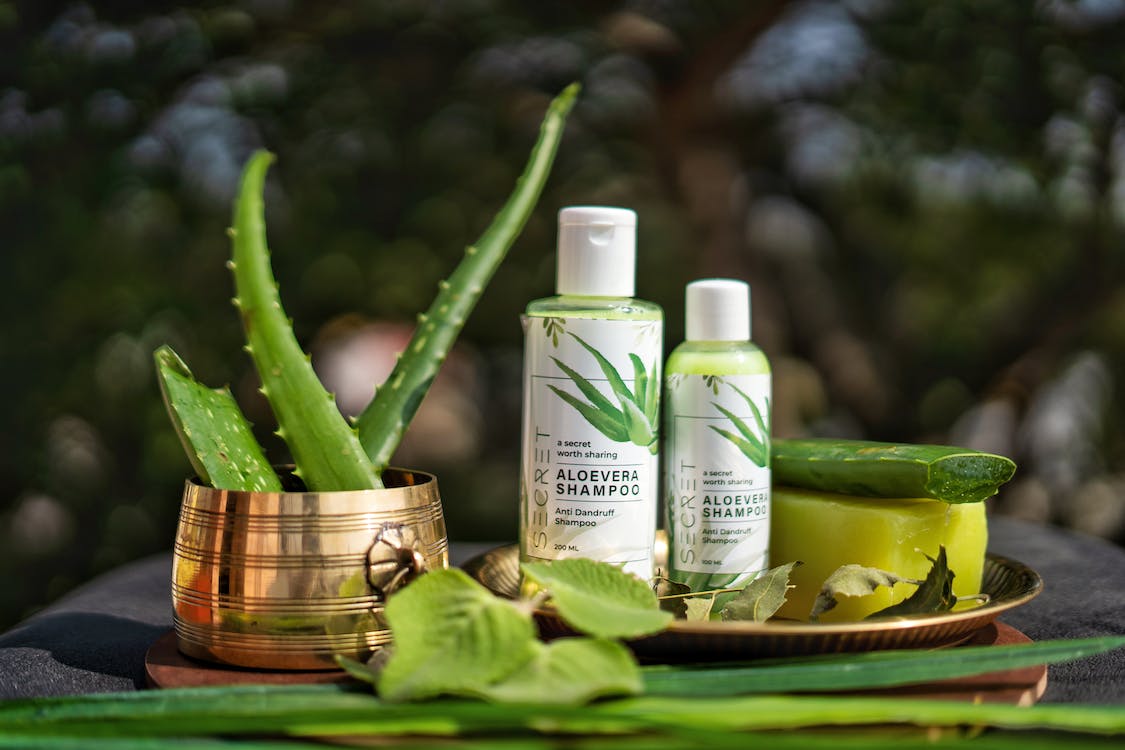Medicinal Benefits of Aloe Vera
21.Dec.2022
Aloe vera is a perennial plant, which is mainly cultivated worldwide for its medicinal and agricultural benefits. The aloe gel is extracted from the fleshy leaves of the plants.
This plant has been widely studied for its therapeutic uses, some of which are described below.
Useful in:
Digestion | Boosts Immune system | Cancer | Skin | Hair | Arthritis | Bone and Muscles | Heals wounds | Women health | Nausea | Diabetes II | Acid Reflux | Anti-aging
How this helps:
Antioxidant and anti-microbial properties:
Aloe gel consists of many phytochemicals with a probable antioxidant property like anthraquinone C-glycosides, other anthraquinones like emodin, lectins, acetylated mannans, an throne, etc. Furthermore, salicylic acid is also present in the gel, which has shown antibacterial properties.
Skin:
Aloe vera has been used since ancient times for topical application and treatment of burns, cuts, stings, rash and any other skin infection. The vitamin E present in the plant helps in diminishing the harmful effects of UV rays like sunburns, pimples, and blisters.
In several cases, it has been noted that applying the gel on even third-degree burns, helps in faster healing of the wounds and restores the skin faster. Furthermore, the gel also helps in removing tan and stretch marks.
Bones, Joints, and Muscles:
The anti-inflammatory property of Aloe vera helps in reducing many inflammatory conditions like arthritis and even decreases the joint and muscular pain.
A topical application of the aloe gel reduces swelling and redness around the affected area and eases the pain.
Cancer:
Some researchers also stated that Aloe vera contained many compounds which arrested the growth of cancerous cells and prevent tumor formation.
The polysaccharides present in the aloe plant consist of effective macrophages that release huge amounts of nitric oxide, which has anti-cancer properties. Aloe gel also helps in soothing the burns and wounds that arise due to radiotherapy treatments.
Aging:
With progressing age, the skin loses its natural elasticity and becomes dry, which increases the occurrence of wrinkles or fine lines.
Aloe gel helps in removing the dead skin cells and moisturizes the skin. Some researchers have also stated that aloe gel improves the skin elasticity and delays the onset of ageing.
Hair fall:
The pH of the scalp is acidic, i.e., 5.5. The commercial shampoos and hair products are alkaline in nature and can change the scalp ph. Any change in the scalp pH can cause hair-related problems, like hair fall, dandruff, oily hair, etc.
Aloe vera removes the dead cells from the scalp, maintains scalp ph, reduces infections and soothes the scalp.
Aloe vera is a perennial plant, which is mainly cultivated worldwide for its medicinal and agricultural benefits. The aloe gel is extracted from the fleshy leaves of the plants.
This plant has been widely studied for its therapeutic uses, some of which are described below.
Useful in:
Digestion | Boosts Immune system | Cancer | Skin | Hair | Arthritis | Bone and Muscles | Heals wounds | Women health | Nausea | Diabetes II | Acid Reflux | Anti-aging
How this helps:
Antioxidant and anti-microbial properties:
Aloe gel consists of many phytochemicals with a probable antioxidant property like anthraquinone C-glycosides, other anthraquinones like emodin, lectins, acetylated mannans, an throne, etc. Furthermore, salicylic acid is also present in the gel, which has shown antibacterial properties.
Skin:
Aloe vera has been used since ancient times for topical application and treatment of burns, cuts, stings, rash and any other skin infection. The vitamin E present in the plant helps in diminishing the harmful effects of UV rays like sunburns, pimples, and blisters.
In several cases, it has been noted that applying the gel on even third-degree burns, helps in faster healing of the wounds and restores the skin faster. Furthermore, the gel also helps in removing tan and stretch marks.
Bones, Joints, and Muscles:
The anti-inflammatory property of Aloe vera helps in reducing many inflammatory conditions like arthritis and even decreases the joint and muscular pain.
A topical application of the aloe gel reduces swelling and redness around the affected area and eases the pain.
Cancer:
Some researchers also stated that Aloe vera contained many compounds which arrested the growth of cancerous cells and prevent tumor formation.
The polysaccharides present in the aloe plant consist of effective macrophages that release huge amounts of nitric oxide, which has anti-cancer properties. Aloe gel also helps in soothing the burns and wounds that arise due to radiotherapy treatments.
Aging:
With progressing age, the skin loses its natural elasticity and becomes dry, which increases the occurrence of wrinkles or fine lines.
Aloe gel helps in removing the dead skin cells and moisturizes the skin. Some researchers have also stated that aloe gel improves the skin elasticity and delays the onset of ageing.
Hair fall:
The pH of the scalp is acidic, i.e., 5.5. The commercial shampoos and hair products are alkaline in nature and can change the scalp ph. Any change in the scalp pH can cause hair-related problems, like hair fall, dandruff, oily hair, etc.
Aloe vera removes the dead cells from the scalp, maintains scalp ph, reduces infections and soothes the scalp.

